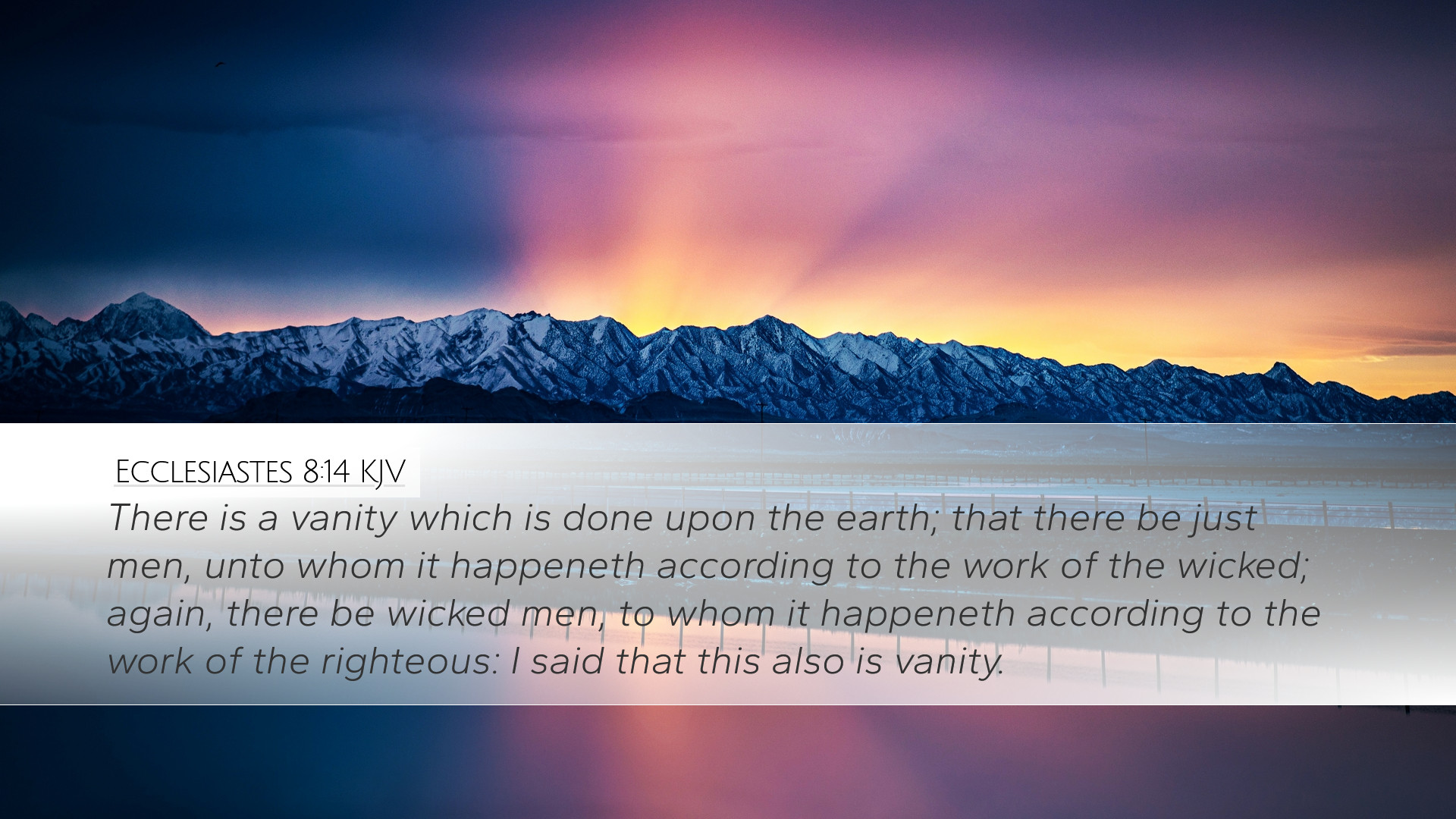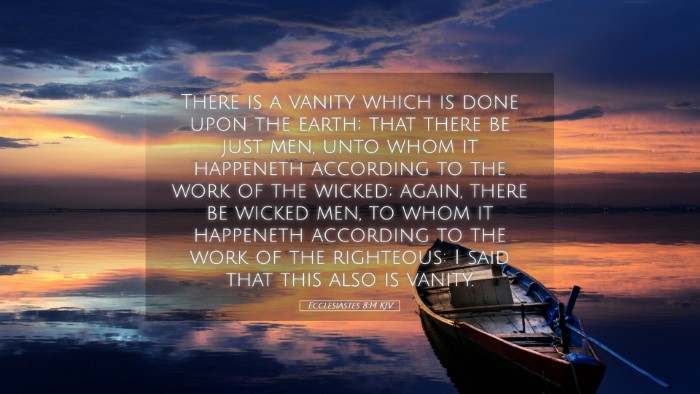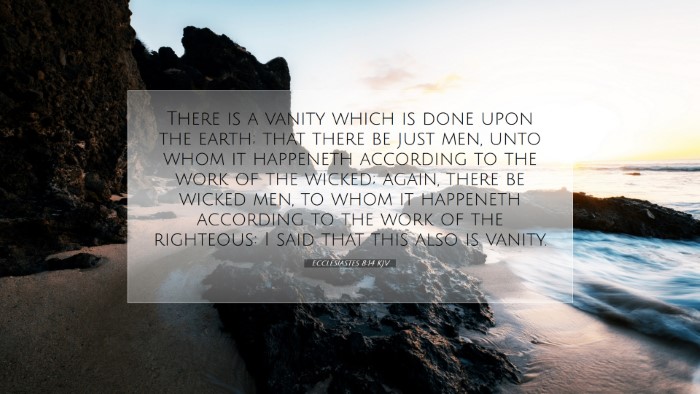Commentary on Ecclesiastes 8:14
Verse: "There is a vanity which is done upon the earth; that there be just men, unto whom it happeneth according to the work of the wicked; again, there be wicked men, to whom it happeneth according to the work of the righteous: I said that this also is vanity."
Introduction
The book of Ecclesiastes, traditionally attributed to King Solomon, delves into the meaning of life and the nature of human existence. In Ecclesiastes 8:14, the Preacher articulates a perplexing observation about justice and the apparent inconsistencies in the world. This commentary synthesizes insights from esteemed public domain scholars including Matthew Henry, Albert Barnes, and Adam Clarke.
Understanding the Text
The verse reflects on the observation of social justice and the enigmatic results of human actions. The Preacher notes a form of vanity, or meaninglessness, in seeing just people suffering while wicked individuals prosper. This theme echoes throughout Ecclesiastes, where the enigmatic nature of life leads to a broader contemplation of human existence.
Matthew Henry’s Insights
Henry emphasizes the contrast between appearances and reality. He observes that while the reign of wisdom should lead to equity, the observable outcome often contradicts this premise. Just men experience hardships typically associated with the wicked, and vice versa. This discrepancy provokes questions regarding divine justice and the overarching governance of the world by God.
Albert Barnes’ Perspective
Barnes expands on the idea that life is often characterized by contradictions. He reflects on the notion that the retribution one expects to see—where virtue is rewarded and vice punished—does not manifest consistently in earthly life. Barnes articulates that this reality may lead to disillusionment, as it appears that justice is delayed or distorted. He notes that righteous individuals may suffer worldly consequences, while the wicked may enjoy prosperity, highlighting the paradox of existence.
Adam Clarke’s Commentary
Clarke delves deeper into the cultural context, suggesting that this verse illustrates the moral confusion prevalent in society. He posits that the temporal state of affairs is not always reflective of a person's true spiritual condition. Clarke advises that while this observation may lead to questioning of God's justice, it ultimately serves to encourage reliance on divine wisdom that transcends human understanding.
Theological Implications
This verse challenges readers to contemplate the nature of divine providence and human experience. It prompts key theological reflections:
- The Nature of Justice: The apparent inconsistency in outcomes raises questions about God's justice. Is there a higher plan beyond human perception?
- The Role of Faith: Believers are encouraged to trust in God's righteousness, even when circumstances suggest otherwise.
- Enduring Vanity: Ecclesiastes frequently addresses the fleeting nature of life and the vanity of earthly pursuits. This verse reinforces those themes, highlighting that both righteous and wicked experience disappointments.
Practical Applications for Today
For pastors and theologians, Ecclesiastes 8:14 provides critical insights into how to minister effectively in a world that often seems unjust. Here are some applications:
- Comfort in Suffering: Encourage those facing injustice to find solace in the knowledge that God is ultimately sovereign.
- Community Support: Foster a community that addresses the realities of suffering and injustice, providing tangible support for those who feel overlooked.
- Preaching Hope: Highlight the promise of eternal justice and the hope of a future where righteousness is ultimately rewarded.
Conclusion
Ecclesiastes 8:14 serves as a poignant reminder of the complexity of life under the sun. As scholars and believers reflect on these themes, may they find comfort in God’s unchanging nature amidst changing circumstances. Recognizing the vanity of life can lead to a deeper reliance on faith and a greater understanding of divine justice.


